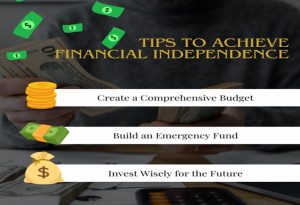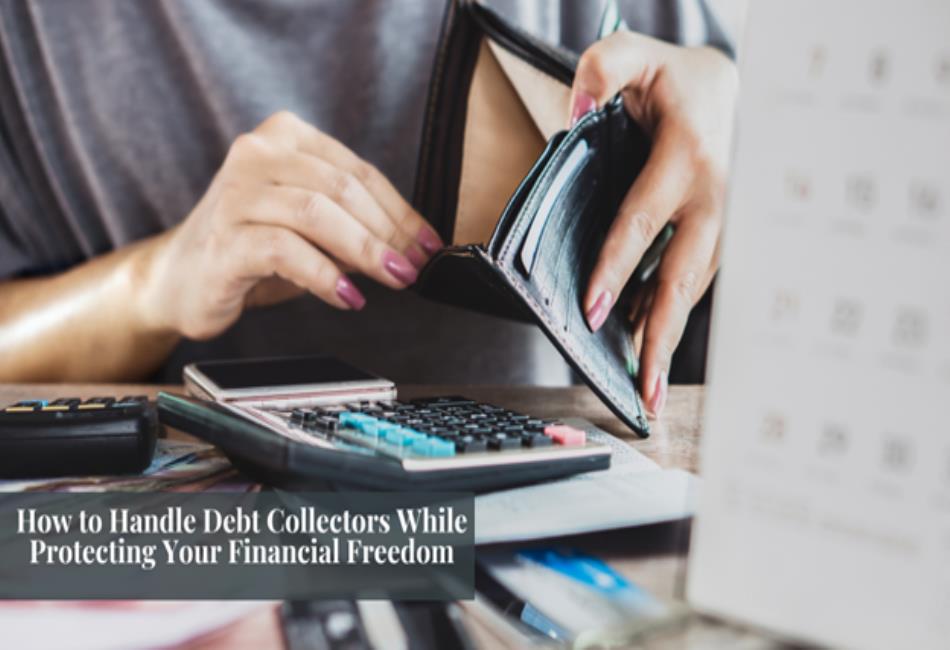How to Handle Debt Collectors While Protecting Your Financial Freedom
For most people, dealing with debt collectors is an overwhelming experience, especially when a person feels overwhelmed by debt obligations, Whether you fall behind in payments or the collection process is aggressive, knowing how to handle this is very important to stay financially free.
In this article, we will examine the most effective ways of handling debt collectors while ensuring your rights are protected and your financial well-being is prioritized.
Understanding Your Rights
You must know your rights before you face the collections people. The Fair Debt Collection Practices Act is a federal law designed to protect consumers against abusive, deceptive, and unfair practices in the collection of consumer debts. There are no reasonable times or places at which debt collectors can contact you.
Collectors are legally obligated to issue a notice in writing of the sum due, the name of the creditor, and the rights accorded to the consumer as provided for by the FDCPA not later than five days from the time of the first communication made with you.
If the debt is yours or is incorrect, you have a right to deny and the collection must cease to collect and gather evidence from you for proof. A midland funding lawsuit establishes the ground for the debt which can educate you and allow you to protect yourself from any harassment or unlawful practice.
Knowing such things as your rights is important to avoid any unforeseen circumstances like harassment or forceful acts to pay your debt.
Stay Cool
When the debt collector makes his call to you, this is bound to make you anxious or defensive. Keep calm and composed, breathe for a while before answering the call, and let the collector speak without interjecting anything. Knowing their side might give you information and make you react accordingly.
In the first discussion, therefore, you should be on your guard not to reach any agreement or promise anything; ensure you get enough time to evaluate your financial situation and an opportunity to analyze your possible options before you decide.
Information Collection
First, before discussing further with creditors, you must collect information you may want to use about the specific debt being discussed. To do that, write out the creditor’s name as well as the account number and amount owed.
Note the name of a collection agency as well as with whom you converse, so that you can use this information later, if need be, to file a complaint. Keeping track of all contact made with a collector, including a date and time for every communication, as well as what transpires, will help if there is any conflict.
Response to Debt Collectors
Now that you have your information together, it is time to decide how to respond: Writing usually is the best way to communicate because it leaves a clear record of all correspondence and will protect you from any misinterpretation of agreements.
Be professional in your communication, clearly stating your position and requesting validation if you feel that the debt itself is inaccurate. Make clear if you face any financial hardship. Write your statement explaining your situation and include the feasible payment plan based on your budget.
Before dealing further with debt collectors, gather all the information about the debt. Write down the name of the creditor, the account number, and the amount you owe. Note the name of the collection agency as well as the representative whom you speak with; this might be useful if you need to file a complaint later.
The fact that all these communications between the collector and you may be very important if cases arise of a dispute involving the genuineness of the amount; if true, but only able to pay this partial amount from your part, then possibly it could become sensible to make an arrangement with the same creditor.
Protecting Your Financial Freedom
During encounters with debt collectors, reminding them of financial independence is very significant. Building a budget encompasses one major step in financially managing to stay on the right path.
List all forms of income and categorize your monthly expenses. Cut back some areas to help allocate even more money on debt payouts. Pay for other essential costs and use whatever there is, to pay back debts.
Sometimes, finding long-term financial health requires debt relief measures. Consolidating debt is rolling several debts into one loan. This usually is at a lower interest rate to make it easier to pay off. Bankruptcy can be an opportunity for someone to start over, who feels weighed down by debt but comes with a long-term cost.
You can learn to manage finances better by having some knowledge of budgeting, debt management, and investment. You can learn through books, online courses, workshops, seminars, and even podcasts on money that have much to teach and advise you about the proper management of money.

Know When To Seek Help
If you feel overwhelmed or cannot handle the situation alone, you can seek professional help. Several resources can help you deal with debt and collectors:
- Credit Counseling Services: Nonprofit credit counseling agencies can educate you on managing your finances and create a budget for you. They can also help negotiate with creditors.
- Legal Aid: If you think your rights have been violated or you are being harassed, seek an attorney who specializes in consumer rights or a legal aid organization for guidance.
- Debt Settlement Companies: Debt settlement companies can negotiate on your behalf; however, be careful and do your research before entering into any agreement with a debt settlement company. Some of these companies charge outrageous fees or make unrealistic promises.
Conclusion
Dealing with debt collectors is surely no easy matter, but if you understand what to do and use the right tools in the right manner, you can finally save your financial freedom and sail through this very difficult period in life.
Knowing your rights, clear communication, and assistance when needed are crucial steps toward reclaiming your control over how your finances are being handled. Remember that every step you take today can lead you to better tomorrows for your finances.
FAQs
- What can I do if a collector contacts me?
If a debt collector does reach out to you, maintain your composure, extract as much information from the collector about the debt, and inform them of your current ability to pay under the law of the Fair Debt Collection Practices Act.
- Am I permitted to negotiate with collectors?
Yes, you can negotiate with debt collectors for a lower settlement amount or a more manageable payment plan.
- What debt management resources exist?
Resources include credit counseling services, legal aid organizations, and nonprofit financial education programs that can aid budgeting and debt negotiation.







